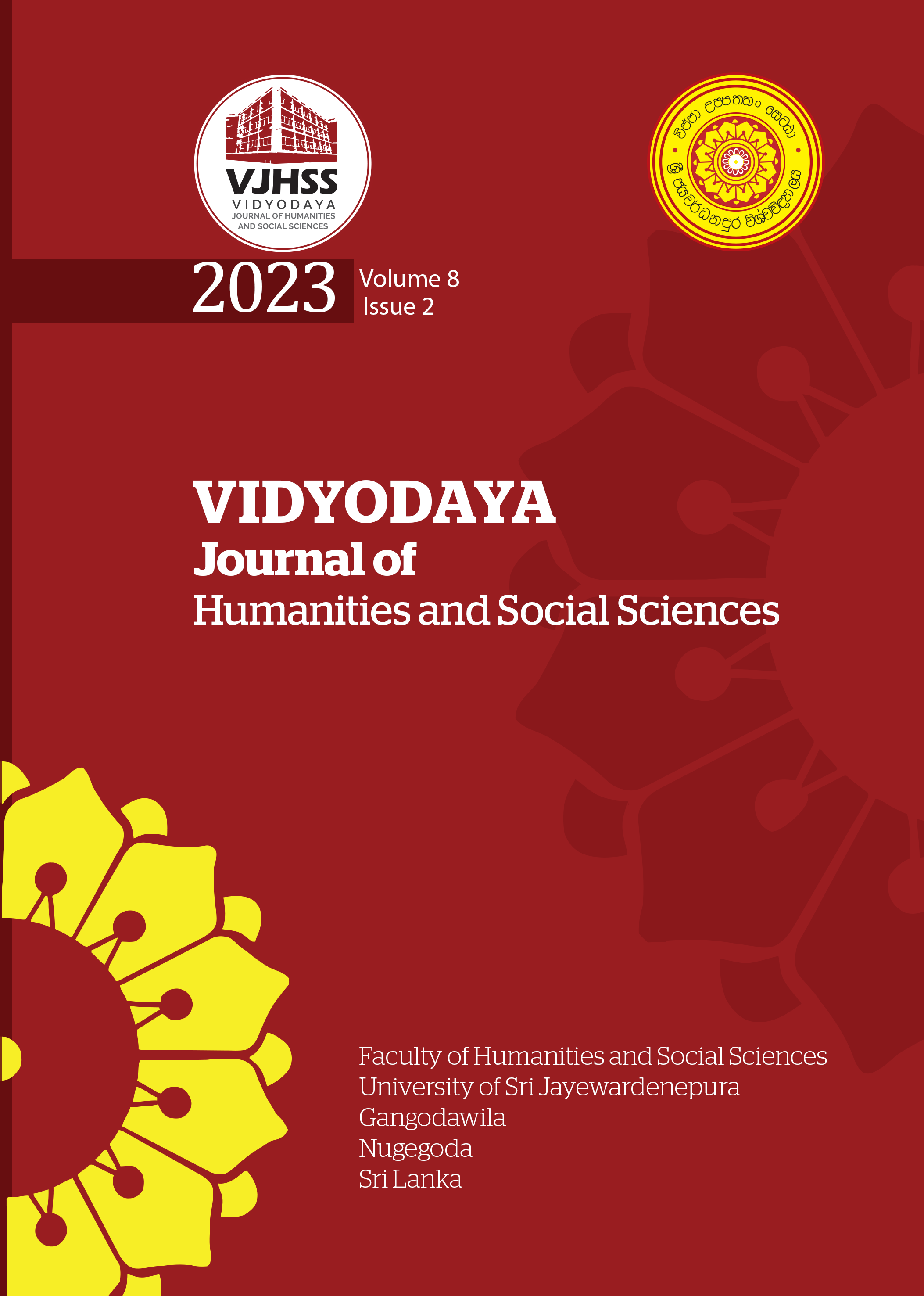Indigenous Food Practices of the Dambana Vedda Community in Sri Lanka: Past and Present Scenario
Abstract
Veddas are considered to be the indigenous community of Sri Lanka. A century ago, the Veddas had scattered across the Eastern Province, North-Central and Uva Provinces. Presently, their main settlement is confined to Dambana in the Badulla district. They inherit unique indigenous knowledge from their ancestors to hunt animals, gather forest goods, collect honey and dig yams to fulfill their food needs as ‘Forest dwellers’. Therefore, they had simple and efficient indigenous techniques for gathering and processing food. The main objective of the present study was to identify and document the past indigenous food practices and current food practices of the Dambana Vedda community. Focus group discussions were carried out with the different age categories of the Vedda community at Dambana to collect information. The indigenous lifestyle of the Vedda community was affected by modernization and civilization. Wild Veddas who lived in the forest have transmitted to village Veddas in colonies with modified food culture. Their indigenous food culture is mixed with the neighboring Sinhalese and Tamil communities. However, with forest reserves restricted, the Veddas are still engaging in a questionable struggle to protect their indigenous tradition and culture. Consequently, they have consumed indigenous foods rarely and novel food varieties become the daily diets of Veddas. Therefore, Veddas have been facing many challenges to protect their unique indigenous food practices for future generations.



